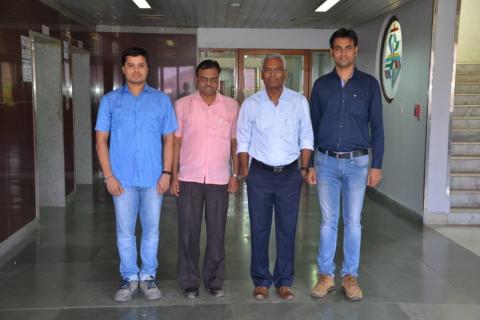Small Animal Imaging

This facility focusses on preclinical animal imaging and research on radiopharmaceuticals. The diagnostic radionuclides - technetium-99m and fluorine-18 complexes are being evaluated for their utility in imaging and monitoring cancer xenografts in mouse models. In 2017, the facility supported 17 preclinical PET, SPECT and CT imaging studies on rodents for basic and translational research projects from ACTREC, other DAE units, academic institutes and pharmaceutical industries.
A majority of the studies were proof-of-concept studies, normal tracer uptake studies and in vivo tumor uptake studies - some involving validation of liver and brain xenograft and orthotopic models. The facility also designs imaging protocols for ex vivo bone imaging and analysis utilizing high resolution microCT, development of animal models, data quantitation, and analysis. During 2017, the facility conducted a major imaging study for the pharmaceutical industry. The facility also runs a complete cancer care program for the diagnosis and treatment of pet animals suffering from spontaneous cancer through its animal oncology clinic. During 2017, 122 referral cases underwent major/ minor surgeries, single or combination drug chemotherapy, radiation therapy or a combination of these, based on clinical requirement.
The animal cancer biorepository maintains biological material (blood, fresh-frozen/ formalin-fixed/ FFPE tissues) obtained during diagnosis and treatment, and utilizes them for research on comparative aspects of animal and human cancers. The senior faculty organized a CME on ‘Preclinical imaging and drug discovery’ at ACTREC from 20th to 22nd September 2017. The facility accepted six trainees during the year – one for Bachelor’s and four for Master’s dissertation, one for research experience, and one observer. Orientation tours of the facility were conducted during the year for visiting students and other visitors.

